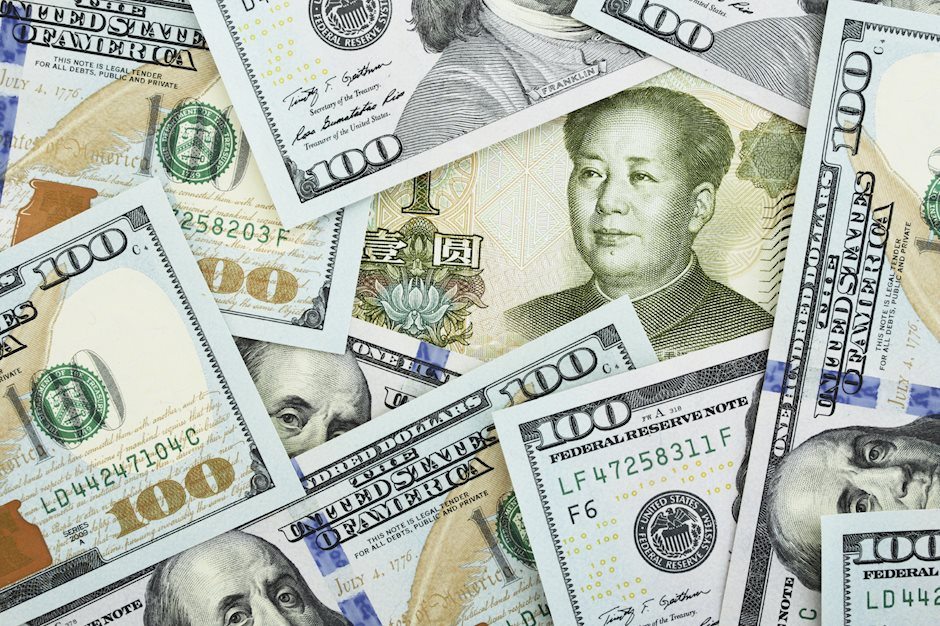Yuan's global ambitions face corporate caution and economic complexities

The People's Bank of China (PBOC) has released new data indicating a rise in foreign exchange (FX) deposits from US$779 billion to $833 billion within just a month. This increase signals that mainland companies are showing reluctance to convert their foreign-exchange earnings into yuan. A key contributing factor to this hesitancy is the higher offshore interest rates, which are negatively impacting the yuan's value.
Corporate hesitation reflects reluctance to convert earnings
Alvin Tan, a currency strategist at RBC Capital Markets, highlights the significant yield spread between the US and China. This rate differential, the most positive since 2007, is a deterrent for Chinese exporters considering exchanging dollars for yuan. Such reluctance from corporate entities poses a significant challenge to President Xi Jinping's vision of expanding the yuan's global role, commonly known as "yuanization."
Beijing's currency management amid economic pressures
While facing intensifying economic headwinds, both Xi Jinping and Premier Li Qiang have opted against devaluing the yuan. While a weaker exchange rate could potentially stimulate exports and maintain GDP near 5%, it could also intensify deflationary pressures.
The situation becomes more intricate as the yen continues its decline to 34-year lows, with its 9.7% drop this year complicating China's efforts to stabilize consumer prices. The recent downgrade of China's sovereign credit rating by Fitch Ratings to "negative" further underscores the financial strains confronting local and regional governments.
Moreover, Fitch's report highlights concerns about local and regional governments' financial health, particularly due to the property market slowdown and refinancing pressures faced by some local government financing vehicles (LGFVs). In response, banks have been urged to support LGFV debt structures through restructurings, while local asset management companies have also provided assistance.
Global investments in Yuan lag behind expectations
Despite China's concerted efforts to promote the yuan on the global stage, international investors and central banks are not embracing yuan assets as anticipated. The enduring strength of the US dollar remains a formidable obstacle to the yuan's global ascent. In February, foreign holdings of US Treasury securities reached a record high, marking an 8.7% monthly increase. This sustained demand for US assets undermines broader de-dollarization efforts by BRICS nations.
Furthermore, US President Joe Biden's policies targeting China's tech industry and the "weaponization" of the dollar to retaliate against Russia's invasion of Ukraine have only intensified global economic tensions. Germany's Finance Minister Christian Lindner has warned that freezing Russian assets could undermine international financial stability.
Challenges to Yuan's long-term global role
While the yuan has made significant strides since its inclusion in the International Monetary Fund's "special-drawing rights" program in 2016, its current softness and the hesitancy of Chinese companies are obstacles to its global aspirations. Alexandra Prokopenko of the Carnegie Russia Eurasia Center notes that China's restrictions on capital transactions prevent the yuan from becoming a full-fledged reserve currency.
Rodrigo Zeidan, a finance professor at New York University Shanghai, suggests that China's efforts to de-dollarize the global economy are currently constrained by its limitations on free capital markets. Zeidan emphasizes that the yuan's future hinges on whether China will merely hedge against potential US sanctions or attempt a more ambitious de-dollarization strategy.
Conclusion: Path forward for Yuan's global aspirations
Xi Jinping's ambition to elevate the yuan's role in global trade and finance faces multifaceted challenges, from corporate reluctance to higher offshore interest rates and economic complexities. Beijing's currency managers must navigate these challenges carefully to avoid exacerbating financial strains while advancing yuanization.
For the yuan to realize its global aspirations, China needs to implement comprehensive reforms across various sectors, including the property market, local government finances, and capital markets development. Additionally, Beijing must address concerns about the yuan's convertibility and capital transaction restrictions to increase global trust and acceptance.
Despite these hurdles, the odds remain favorable for the yuan's global role to expand as China continues to modernize its economy. However, achieving Xi's vision of making the yuan a viable alternative to the US dollar will require concerted efforts, strategic reforms, and navigating a complex global economic landscape. Only then can the yuan challenge the US dollar's dominant position and realize its full potential on the global stage.
Author

Faouz Rejeb
Independent Analyst
Transitioning from my distinction as the Best Crypto Analyst in 2022, I actively serve as a distinguished Marketing Brand Manager and acclaimed independent Market Analyst.
















